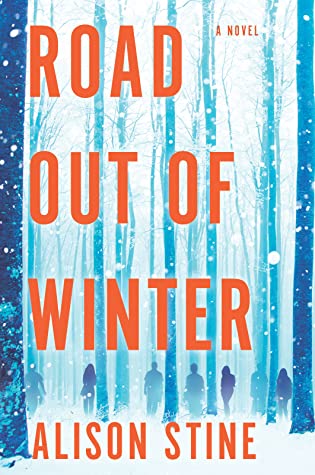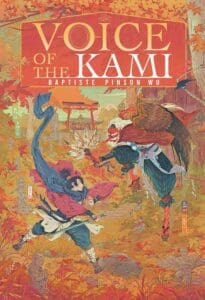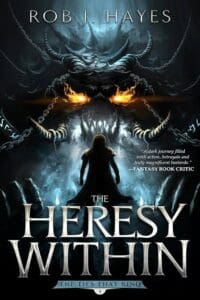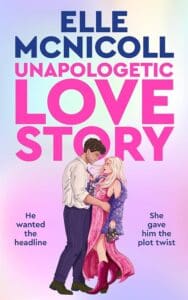
Synopsis
In an endless winter, she carries seeds of hope
Wylodine comes from a world of paranoia and poverty—her family grows marijuana illegally, and life has always been a battle. Now she’s been left behind to tend the crop alone. Then spring doesn’t return for the second year in a row, bringing unprecedented, extreme winter.
With grow lights stashed in her truck and a pouch of precious seeds, she begins a journey, determined to start over away from Appalachian Ohio. But the icy roads and strangers hidden in the hills are treacherous. After a harrowing encounter with a violent cult, Wil and her small group of exiles become a target for the cult’s volatile leader. Because she has the most valuable skill in the climate chaos: she can make things grow.
Urgent and poignant, Road Out of Winter is a glimpse of an all-too-possible near future, with a chosen family forged in the face of dystopian collapse. With the gripping suspense of The Road and the lyricism of Station Eleven, Stine’s vision is of a changing world where an unexpected hero searches for where hope might take root.
Review
A reluctant-yet-capable weed farmer finds hope in a chilling, wintery apocalypse through friendship, adversity and seeds.
Alison Stine’s Road Out of Winter is one of those rare books that hits the serendipitous sweet spot of right time, right place, right mood—right everything. Almost. I had just gone through a particularly stressful move, packing, heaving and sweating a family of three’s entire house to a new one. That experience left me wanting to read something moody, atmospheric, depressing even. (Thinking back, I probably wanted to wallow in some post-move, self-loathing bullshit, but that’s neither here nor there.) So, where better to look for that than the post-apocalyptic genre? And that’s where I found Road Out of Winter, the winner of last year’s Philip K. Dick Award and a book seeped into wintery blues from title to plot. It’s a fairly short read, so I fired up my Kindle and went for it, pulled the trigger, ‘cause why not? A couple of days blurred past, and Stine pulled me through a story of rural landscapes full of climate-wrought confusion and dread, human nature’s ugliest sides, heartfelt friendships, physical and mental adversity, and, to my pleasant surprise, genuine hope.
When it comes to the post-apocalyptic genre, there’s a mountain of tropes, expectations, common themes, character types, been-there-read-that. For me, my most memorable experiences in the genre come from Cormac McCarthy’s The Road, Margaret Atwood’s MaddAddam trilogy and the Fallout and The Last of Us video game series. There is plenty of variation amongst just those, for sure, but a lot of similar explorations arise: loneliness and survival, found versus blood family, trust and betrayal, environmental- and human-based conflict, and much more. What I appreciated most about Road Out of Winter is how it plays into many of those tropes but then undermines them in subtle ways, subverting expectations but never bashing you over the head with it.
Take the main character, Wylodine. She is a rural girl from southern Ohio, and she comes from a family of questionable occupation. They’re only weed farmers, so nothing that bad (depending on who is judging), but Wil is particularly gifted with harvesting, trimming and other farming duties. Trouble is, her mom is an addict, unreliable and dates horrible men. That’s where Lobo enters the picture, and he ropes mother and young daughter into being weed farmers. For Wil, this was never a childhood of predictability nor stability, and the result is someone who has had to be more self-reliant, but also skeptical of the world around her. Even though her life’s been rife with poverty and negligent parenting, she truly cares her mother. By the time the narrative kicks off, Wil is on her own, her mother and Lobo having abandoned her for greener pastures in California. But the slow creep of winter worsens and worsens, and Wil is alone, lingering. And lingering. Until finally she is left with a decision: stay in Ohio to freeze alone, or go to California and find her mother.
As most fictional apocalypses encroach or occur, this type of “find your family” quest is pretty typical, but Stine handles it well. Contrary to many apocalypses, there isn’t as much desperation or urgency for Wil to hit the road, at least not at the beginning. She is reluctant to leave behind what was “gifted” to her by Lobo and her mom. But once a seemingly never-ending winter lingers longer and longer, Wil hits the road, and her mother ultimately serves as a red herring for what the journey actually comes to reveal (more on that later).
The deliberately unhurried pacing of the novel works to the benefit of this particular winter apocalypse; slow, unassuming, building towards something far worse, as the storm thickens and the snow falls heavy, the true threats difficult to perceive or predict. The tension is all the more present because it is never fully explained why or how this apocalypse comes about. It could be the inching creep of climate change that we are currently living through, some shift in the Earth’s axis. Or geoengineering, some Bill Gates- or Jeff Bezos-esque figure releasing particles into the atmosphere to reverse ever-increasing temperatures and carbon dioxide buildup. That it is left unexplained really worked for me, and I kept reading between the lines of description and dialogue to parse out more about this frigid future. Even more chilling is how people react to what has happened. Whatever the cause of this catastrophe, human nature has the capacity to unfold in both benevolent and brutal ways.
Thankfully, Wil is not alone. Amidst this overwhelming cold, she gathers a found family: two young men and a wrung-out-yet-persevering teen mother and her daughter. This family-friendship dynamic works superbly because it builds naturally, the family growing over the course of the novel in ways that make sense but also leave room for small surprises and heartfelt moments. I liked each character in the novel’s small cast, all of them coming across as authentic, given the terrible circumstances. Also, coming from a small town, I can picture how the rural folk I grew up around might react to impending, subzero doom. (Some would welcome the challenge and chaos, whereas most would freak the fuck out and perish sooner-than-later.) The characters in Road Out of Winter certainly fit that mold but are also unique enough to stand out. Personally, there’s so much more I want to know about each of them, and dialogue between them isn’t always perfect, but that’s a small gripe for such an intimate group.
Still, Stine uses this apocalypse-in-the-making and blends with the already harsh environment of the Appalachian region to present a worthy challenge for Wil and her family. As they willingly journey together towards California, the winding, ice-covered roads and snow-filled forests of Appalachia test them again and again, in often brutal but satisfying ways. Stine has a knack for building tension, starting with rural mundaneness of a situation or place, using character interactions to edge towards something, someone. It never verges on horror, but always creeps along the line of unnerving and unexpected, your mind running scenarios about what might around the corner. And that works so well when Wil and company find themselves in the midst of a hillbilly cult (of course!). When it is clear that Wil and the others have skills to be utilized (or abused), there is subdued, implied threat in how these cult members “embrace” them into the community; the unspoken potential for violence grows and these particular chapters were invigorating to read, especially because of the attention paid to Wil and her abilities as a grower—not just of marijuana, but of other crops in a time of desperation and looming starvation.
Ultimately, it is Wil’s expertise in growing that serves as the underlying thematic current throughout Road Out of Winter. She has the capability to survive the apocalypse, and she knows it, but perhaps facing it all alone is not feasible—for the mind or the soul. The family she seeks in California is nothing compared to the family she finds along the way; the family she chose looks to her as their leader, their matron, and she is capable of assuming that role. There is hope in that role, much as there is hope in a single seed to grow and bear fruit. As much hardship as Wil faced during the course of the novel, and even though it ends in an ambiguous, open-ended way, hope is the seed she planted, intentionally or not. Making her way across a portion of winter-wrecked America, the seeds she collected were literal tokens of the hope within herself. I will never know what happens to Wil and the rest of the characters, as Road Out of Winter closes with as many questions as answers. But, for a novel rooted in the seeds of hope in times of desperation, the ideas rooted in my imagination over the course of this narrative can spread into an entire garden of potentialities for Wil’s future. Deep in my heart, I know she will survive.









Leave a Reply